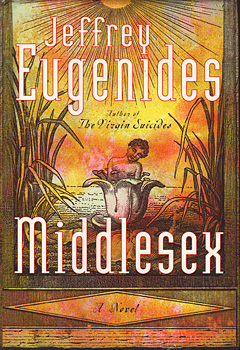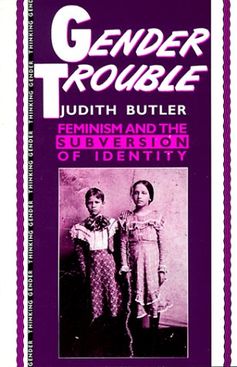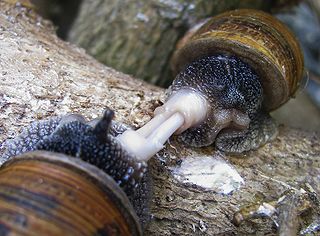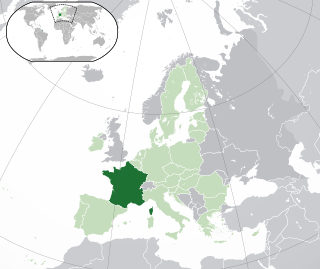
The Intersex Society of North America (ISNA) was a non-profit advocacy group founded in 1993 by Cheryl Chase to end shame, secrecy, and unnecessary genital surgeries on intersex people. Other notable members included Morgan Holmes, Max Beck, Howard (Tiger) Devore, Esther Morris Leidolf and Alice Dreger. The organization closed in June 2008, and has been succeeded by a number of health, civil and human rights organizations including interACT.

The History of Sexuality is a four-volume study of sexuality in the Western world by the French historian and philosopher Michel Foucault, in which the author examines the emergence of "sexuality" as a discursive object and separate sphere of life and argues that the notion that every individual has a sexuality is a relatively recent development in Western societies. The first volume, The Will to Knowledge, was first published in 1976; an English translation appeared in 1978. The Use of Pleasure, and The Care of the Self, were published in 1984. The fourth volume, Confessions of the Flesh, was published posthumously in 2018.

Middlesex is a Pulitzer Prize–winning novel by Jeffrey Eugenides published in 2002. The book is a bestseller, with more than four million copies sold since its publication. Its characters and events are loosely based on aspects of Eugenides' life and observations of his Greek heritage. It is not an autobiography; unlike the protagonist, Eugenides is not intersex. The author decided to write Middlesex after reading the 1980 memoir Herculine Barbin and finding himself dissatisfied with its discussion of intersex anatomy and emotions.

The history of intersex surgery is intertwined with the development of the specialities of pediatric surgery, pediatric urology, and pediatric endocrinology, with our increasingly refined understanding of sexual differentiation, with the development of political advocacy groups united by a human qualified analysis, and in the last decade by doubts as to efficacy, and controversy over when and even whether some procedures should be performed.

Gender Trouble: Feminism and the Subversion of Identity is a book by the post-structuralist gender theorist and philosopher Judith Butler in which the author argues that gender is performative, meaning that it is maintained, created or perpetuated by iterative repetitions when speaking and interacting with each other.
Herculine Adélaïde Barbin, later known as Abel Barbin, was a French intersex person who was assigned female at birth and raised in a convent, but was later reclassified as male by a court of law, after an affair and physical examination. She is known for her memoir, Herculine Barbin, which was studied by Michel Foucault. Her birthday is marked as Intersex Day of Remembrance.
A Mouthful of Birds is a 1986 play with dance, written by Caryl Churchill and David Lan, with choreography by Ian Spink. Drawing its themes from The Bacchae of Euripides, it is a meditation on possession, madness and female violence.

A hermaphrodite is a sexually reproducing organism that produces both male and female gametes. Animal species in which individuals are either male or female are gonochoric, which is the opposite of hermaphroditic.

Intersex people are individuals born with any of several sex characteristics, including chromosome patterns, gonads, or genitals that, according to the Office of the United Nations High Commissioner for Human Rights, "do not fit typical binary notions of male or female bodies".
Hermaphrodites with Attitude was a newsletter edited by Cheryl Chase and published by the Intersex Society of North America (ISNA) between 1994 and 2005. The full archives are available online. In 2008, ISNA transferred its remaining funds, assets, and copyrights to Accord Alliance and then closed.
Gottlieb Göttlich was an intersex man in the 1800s who became well-known for his condition, as it was the first time many medical practitioners had seen such a case.

Intersex, in humans and other animals, describes variations in sex characteristics including chromosomes, gonads, sex hormones, or genitals that, according to the UN Office of the High Commissioner for Human Rights, "do not fit typical binary notions of male or female bodies". Intersex is a part of nature and that is reflected in some representations of intersex in film and other media.

Intersex, in humans and other animals, describes variations in sex characteristics including chromosomes, gonads, sex hormones, or genitals that, according to the UN Office of the High Commissioner for Human Rights, "do not fit typical binary notions of male or female bodies".

Intersex Day of Remembrance, also known as Intersex Solidarity Day, is an internationally observed civil awareness day designed to highlight issues faced by intersex people. It marks the birthday of Herculine Barbin, a French intersex person whose memoirs were later published by Michel Foucault in Herculine Barbin: Being the Recently Discovered Memoirs of a Nineteenth-century French Hermaphrodite.

Intersex, in humans and other animals, describes variations in sex characteristics including chromosomes, gonads, sex hormones, or genitals that, according to the UN Office of the High Commissioner for Human Rights, "do not fit typical binary notions of male or female bodies". Intersex people were historically termed hermaphrodites, "congenital eunuchs", or even congenitally "frigid". Such terms have fallen out of favor, now considered to be misleading and stigmatizing.

The following is a timeline of intersex history.

Intersex people in France face significant gaps in protection from non-consensual medical interventions and protection from discrimination. The birth of Abel Barbin, a nineteenth-century intersex woman, is marked in Intersex Day of Remembrance. Barbin may have been the first intersex person to write a memoir, later published by Michel Foucault.

Military service of intersex people varies greatly by country. Some armed forces such as the Australian Defence Force fully embrace intersex people in the modern era, while others such as the United States Armed Forces have vague rules or policies or treat the subject on a case by case basis.

The (DoDI) 6130.03, 2018, section 5, 13f and 14m is the writing which bars persons with "true hermaphroditism", "pseudohermaphroditism" and "pure gonadal dysgenesis" from serving in the United States Armed Forces. The three are all intersex conditions and are as of now considered to be medically incompatible with military service in the United States. "DoDI" stands for "Department of Defense Instruction," the 6130.03 instruction concerns "Medical Standards for Appointment, Enlistment, or Induction in the Military Services" in the Armed Forces of the United States. Section 5 focuses on disqualifying conditions of the male and female reproductive system, on the female page the subheader 13 and paragraph f name true hermaphroditism, pseudohermaphroditism and pure gonadal dysgenesis specifically, and on the male page the subheader 14 and paragraph m also name exactly true hermaphroditism, pseudohermaphroditism and pure gonadal dysgenesis, respectively. There is no differentiation made between males and females with these conditions. Many doctors, medical professionals and intersex advocates find the terms hermaphroditism to be outdated and stigmatized, therefore it and its derivative words are seldom used in the 2000s, with the word hermaphrodite itself being considered a slur when used against a human.








